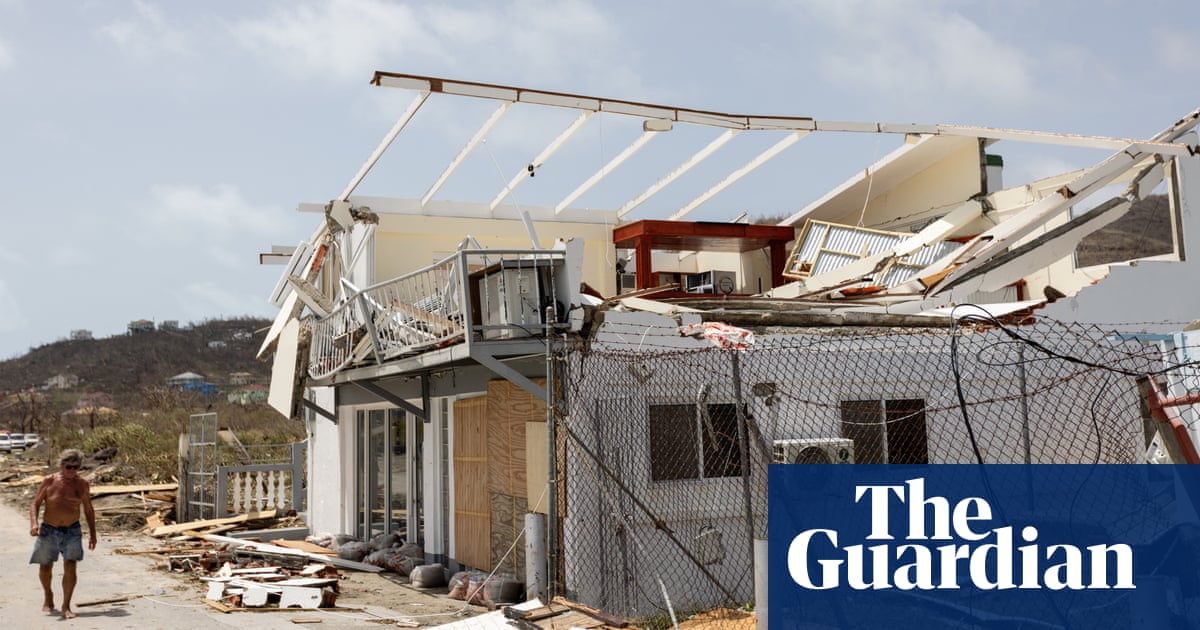Britons have joined a growing global effort to help thousands of people in the Caribbean left homeless and destitute in the wake of Hurricane Beryl.
Since making landfall on Monday, the hurricane has killed at least 10 people.
It obliterated almost all of the buildings and vegetation in the Grenadian islands of Carriacou and Petite Martinique. It also caused widespread destruction on the island of St Vincent and demolished 95% of structures in the Grenadine islands of Union, Petit St Vincent, Palm Island and Mayreau.
Beryl then went on to ravage Jamaica and the Cayman Islands. In Jamaica, it caused two deaths after ripping off roofs and uprooting trees and electrical poles.
The hurricane also battered Mexico’s Yucatán peninsula and brought intense flooding to Venezuela, where three people died and four are missing.
A tearful resident of Union described the hurricane as “worse than the devil”, breaking into sobs as he said he had lost everything. Words, he added, are not enough to describe the terror of the storm.
The stories of those affected by Beryl have captured the attention of people, organisations and countries around the globe. The US joined governments in the Caribbean to pledge humanitarian and financial support.
In the UK, the newly installed foreign secretary, David Lammy, said he would increase support to Caribbean countries affected by Beryl to £500,000. This includes 800 emergency shelter kits, capable of supporting up to 4,000 people.
“Our thoughts remain with those who have lost loved ones, their homes or have been left without power,” he said. “This funding will help support disaster recovery efforts, as part of a swift and coordinated response in the region.
“That such a storm has developed so early in the season shows that we are facing a climate emergency and must act now.”
Individuals with connections to the islands have also started fundraisers and aid collection drives. The GoFundMe appeals in the UK have raised more than £200,000.
In London, Grenadians Saskia Moynihan De Silva and Esmond Joseph spoke to the BBC about their emergency appeals. They are collecting non-perishable food, toiletries and medical supplies to ship to Grenada.
In Union island, Kory Meidell from the Christian disaster response group Gideon Rescue Co arrived to set up satellite-based internet service, Starlink, after Beryl caused a communication blackout that has hindered rescue and relief efforts.
“They needed some help setting up their Starlink, and we are happy to do that to get their communications back up. We know that God cares much about this island, and that’s the thing we want to share, that God cares about the people here. He knows the hurt and heartache, and he is sending help,” Meidell said.
Help has also come from locals, who are themselves affected by the hurricane.
In Union, professional kitesurfer Jeremie Tronet and Abdon Whyte, a teacher at the Union Island secondary school, have been using their own resources, time and effort to bring relief to the island. Tronet’s GoFundMe page has already raised more than €200,000.
Whyte, who has been supporting cleanup efforts, said more hands were needed on the ground. “We need persons to assist with cleaning; we need more medical people because some of the nurses have been injured or lost everything. (We need) first aiders, first responders, and police because the island has nothing. I myself have lost everything,” he said.
Governments are also asking for donations to their own relief funds. St Vincent and the Grenadines (SVG) has set up a site with bank account details and a list of priority relief items. Grenada has posted similar appeals for volunteers and financial contributions on their National Disaster Management Agency Facebook page.
In SVG, the government has temporarily waived import taxes on relief items coming into the country.
Officials in the affected countries are also urging those wishing to make contributions to stick to the list of priority items and liaise with the national emergency offices to ensure aid distribution is coordinated and reaches the right people.
Dickon Mitchell, prime minister of Grenada, and his counterpart from Saint Vincent and the Grenadines, Ralph Gonsalves, who face a dire humanitarian situation and the prospect of rebuilding islands from the ground up, have expressed grave concerns about the staggering costs associated with the “herculean” relief and recovery effort.
Officials have highlighted the urgency of restoring basic services such as medical care and security, with police concerned about a breakdown in law and order due to power outages and unsecured properties.
The SVG high commissioner in London has stressed the need for a “swift recovery”, adding that this is “an essential condition” for sustainable development to continue in the Caribbean nations.

